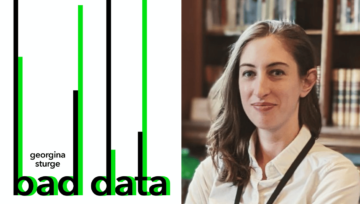Christopher J. Snowdon in Quillette:
 H.G. Wells once predicted that “statistical thinking will one day be as necessary for efficient citizenship as the ability to read and write.” It was a slight exaggeration, but in an age of big data in which governments pride themselves on being “evidence-based” and “guided by the science,” an understanding of where facts and figures come from is important if you want to think clearly.
H.G. Wells once predicted that “statistical thinking will one day be as necessary for efficient citizenship as the ability to read and write.” It was a slight exaggeration, but in an age of big data in which governments pride themselves on being “evidence-based” and “guided by the science,” an understanding of where facts and figures come from is important if you want to think clearly.
Georgina Sturge works in the House of Commons Library where she furnishes UK MPs with statistics. If Bad Data is any guide, she also provides them with caveats and other words of caution, which are ignored. This informative, reasoned, and apolitical book offers a string of examples to show that statistics are not always what they seem. Some statistics are rigged for political reasons. Others are inherently flawed. Some are close to guesswork. Even crucial variables such as Gross National Income and life expectancy are shrouded in more uncertainty than you might think. We don’t really know how many people live in Britain legally, let alone illegally. The number of people who are living in poverty varies enormously depending on how you measure it.
More here.
